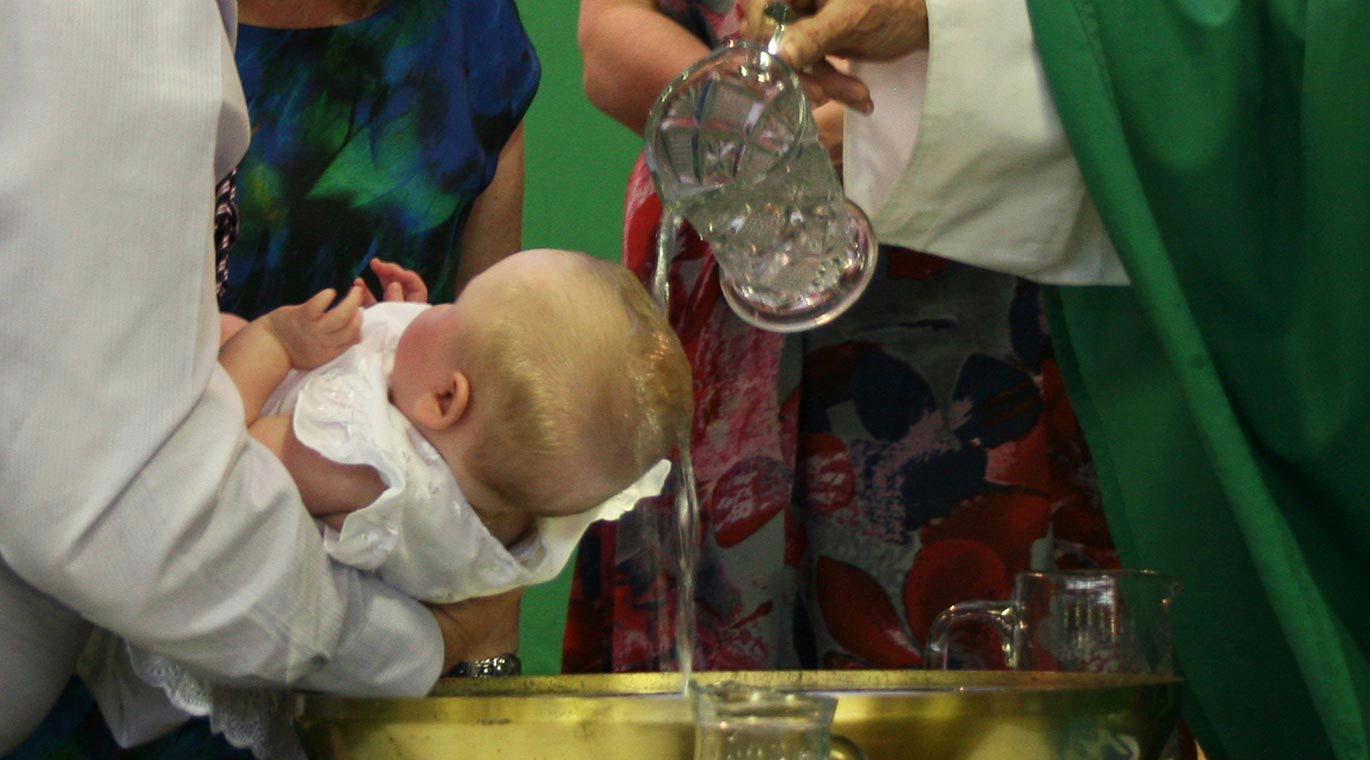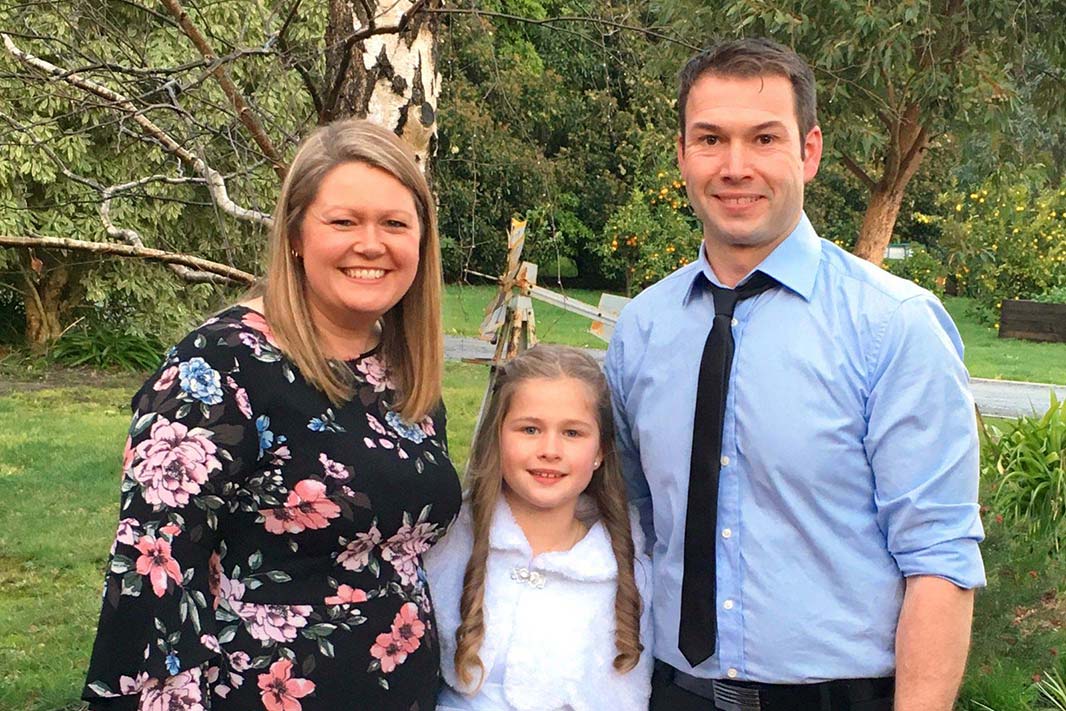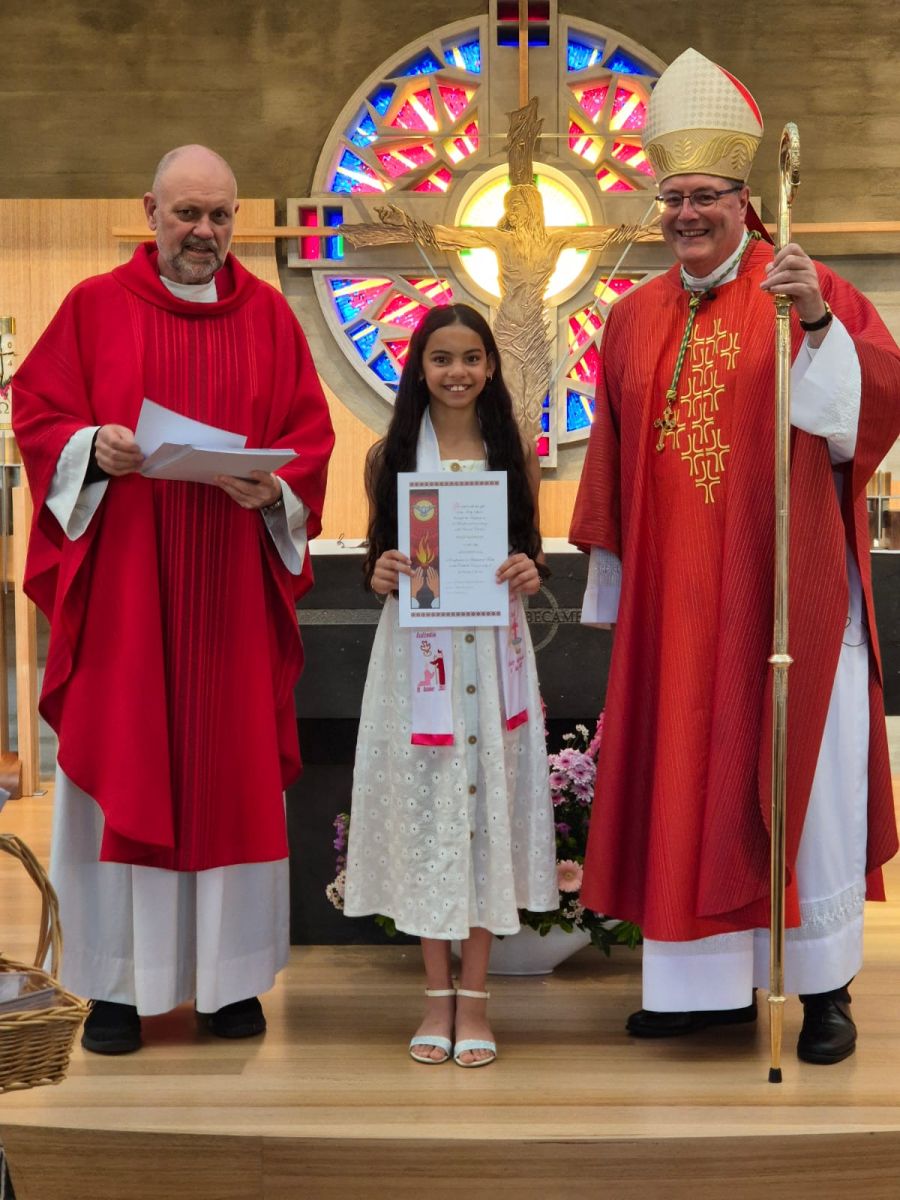The Sacraments of Initiation - Baptism, Confirmation and Eucharist - in the Diocese of Sale are family centred, Parish based, school and catechist supported. (For Teaching resources see Prayer and Sacrament Resources.)
These sacraments lay the foundations of every Christian life, and allow for the faithful to be born renewed and strengthened into the Christian faith.
Baptism is the first of the Sacraments of Initiation. The meaning for Baptism is to make Christian followers children of God through the action of water and the Holy Spirit.
The majority of non-adult Baptisms are infants, but today, some parents are opting to have their children baptised at an older age. In both these cases, the parents undertake some preparation in their Parish. With primary aged children, they may prepare in the Parish with parental and/or school support.
Godparents are chosen as someone who will assist the parents in supporting the faith development of their children. Godparents must be baptised and confirmed Catholics over the age of 16. They must be formed to see themselves as members of the Church, and must therefore show willingness to live as a follower of Christ within a Christian community, and to share in the worship, prayer and mission and the life of the Parish.
To learn how you can present your child for baptism, please contact your local parish.

The Sacrament of Eucharist is the heart of our Christian faith. It brings together the Christian community, gives it identity and prepares the community for mission. This sacrament nourishes and strengthens us and makes us ‘Church and Body of Christ for the world.’
Children will be invited to prepare for their First Holy Communion at about eight years of age. It is the choice of the parents as to when they think their child is ready to receive the sacrament. For a child to be ready, they must be familiar with the religious rituals of the Church.
This means they must have some understanding as to why we celebrate the Eucharist, what it means to receive Holy Communion and why they have a desire to participate in this experience.
Preparation, readiness and understanding among children will vary. Canon Law states that “sufficient knowledge and preparation so as to understand the mystery of Christ according to their capacity”.
In light of this (and in the spirit of the interpretation of Canon Law), children with an intellectual disability, who are supported by the faith of their families or the faith community, should not be arbitrarily denied the sacraments.
To learn how your child can prepare for first Eucharist please contact your local parish.

Confirmation completes initiation into the Catholic Church. This sacrament is usually administered to children at the age of about twelve, by the Bishop of the Diocese.
The Rite of Confirmation is twofold. The bishop and the concelebrating priests lay hands on the candidate and invokes the Holy Spirit. The anointing with Chrism and the words that accompany clearly express the effects of the giving of the Holy Spirit.
Signed with the perfumed oil of Chrism, the baptised person receives the indelible character, and is sealed with the Holy Spirit, which brings them more closely to Christ and gives them the grace to spread the good news of Jesus among people.
Source: (From the Diocese of Sale Sacramental Policy, Becoming Catholic (Kathy Horan) and the Compendium of the Catechism of the Catholic Church.)
